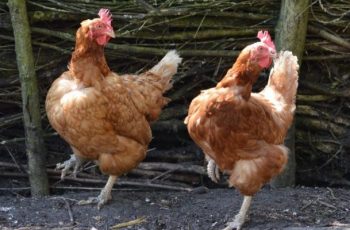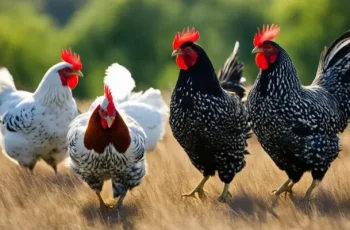Protecting Your Poultry from Common Diseases
Raising poultry offers many benefits, including fresh eggs and a steady source of meat. However, one of the key responsibilities of poultry owners is managing and preventing diseases that can quickly spread through a flock. Understanding how to protect your chickens from common poultry diseases is crucial for their health and productivity. This article covers several common diseases and how to protect your flock from them.

Avian Influenza: A Deadly Threat
Avian influenza, or bird flu, is a viral infection that affects chickens, turkeys, ducks, and other birds. While some strains are mild, others can cause severe losses. It spreads through contact with infected birds or contaminated materials. Symptoms include respiratory distress, coughing, nasal discharge, and swelling. In severe cases, sudden death may occur.
Prevention involves keeping poultry indoors, limiting exposure to wild birds, and disinfecting equipment. Vaccines are available for some strains but aren’t universally effective. Prevention through biosecurity is key.
Marek’s Disease: A Viral Infection
Marek’s disease, caused by a herpesvirus, primarily affects young chickens. It attacks the immune system, causing paralysis, tumors, and other complications. Symptoms include leg paralysis, difficulty breathing, and abnormal posture. The disease spreads through direct contact and contaminated environments.
Vaccination is the best defense, with chicks vaccinated early in life. Good hygiene practices and isolating sick birds can help control outbreaks.
Coccidiosis: An Intestinal Parasite
Coccidiosis is a common intestinal disease caused by protozoan parasites that lead to diarrhea, lethargy, and, in severe cases, death. It spreads through contaminated bedding, feed, and feces. Young chicks are particularly vulnerable.
Preventive measures include maintaining a clean environment, regularly changing bedding, and ensuring clean water. Medicated feed containing anticoccidial drugs can also help prevent and treat the disease.
Newcastle Disease: A Rapidly Spreading Virus
Newcastle disease is a highly contagious viral infection that causes respiratory, gastrointestinal, and neurological symptoms. The virus spreads through infected birds, contaminated feed, or equipment. Symptoms include coughing, sneezing, nasal discharge, and neurological issues like paralysis.
Vaccination is the most effective prevention, along with quarantining new birds before introducing them to the flock. Practicing good biosecurity measures can reduce the risk.
Fowl Pox: A Virus Spread by Insects
Fowl pox causes scabs or lesions on the skin and mucous membranes. It spreads through insect bites (especially mosquitoes) or direct contact with infected birds. There are two types: dry pox, which causes scabby lesions, and wet pox, which affects the mouth, throat, and respiratory system.
Vaccination helps prevent outbreaks, and minimizing mosquito exposure with netting or insect repellents can reduce the risk of infection.
Respiratory Diseases: A Common Issue
Respiratory diseases like infectious bronchitis and mycoplasma infections are common, particularly in crowded or poorly ventilated coops. Symptoms include coughing, sneezing, nasal discharge, and wheezing. These diseases spread quickly and can cause a decrease in egg production.
Preventive measures include maintaining good ventilation, avoiding overcrowding, and providing ample space for the birds. Vaccines for infectious bronchitis and antibiotics for mycoplasma infections can help control these diseases.

Conclusion
Protecting your poultry from diseases is vital for their health and productivity. Diseases such as avian influenza, Marek’s disease, coccidiosis, Newcastle disease, fowl pox, and respiratory illnesses can significantly impact a flock. Vaccination, good biosecurity, and proper management are essential in preventing and controlling these diseases. By staying proactive and vigilant, you can ensure your chickens remain healthy and productive.

